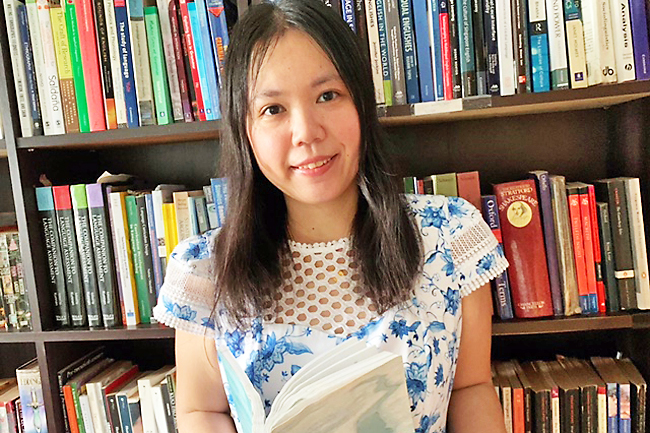As she watched her fourth graduating cohort of students sit for their GCE O-Levels, Angelia Wong, an English teacher at the time, began to reminisce about her experience as an undergraduate student at the National Institute of Education, Nanyang Technological University, Singapore (NIE NTU, Singapore).
Recognising the need to upskill to better provide for the diverse needs of her students, Wong made a decision to return to NIE NTU, Singapore to pursue a Master of Arts in Applied Linguistics (MAAL).
“There was a pertinent and pressing need for me to further hone my craft and stay abreast with the latest pedagogical advancements. This was driven by the need to not only cater to my students’ diverse needs but to also be accountable to them.”
With a supportive learning environment that actively promotes collaborative learning, returning to NIE for postgraduate studies was a natural decision for Wong, even if it meant having to step out of her comfort zone to learn new concepts or skills from scratch.
“All the esteemed professors and lecturers are amiable and approachable. They are always keen to share their expertise and deliberate about pedagogical approaches with their students. Lessons are always engaging with room for critical thinking to take place in an unthreatening environment.”
Designed primarily for English language teaching professionals, the MAAL programme provides a broad-based course of study in the field of applied linguistics, which encompasses elements of language education and language studies, while balancing theoretical knowledge with practical application. Other than a plentitude of opportunities for her to reflect on her teaching practices and philosophies, the MAAL programme also encouraged her to assess her pedagogical and theoretical knowledge, as well as its applicability in varying classroom contexts through mini studies.

These research opportunities eventually inspired and spurred Wong on to pursue a Doctor of Philosophy (PhD) with NIE, with a focus on language policy and planning.
However, it does not mean Wong has veered off the path of education, as she ventures into academia.
“In my opinion, theoretical knowledge of teaching practices in the English classroom and language policy and planning do have a correlation with each other. I would think that education as well as language policies might have an influence on teaching practices,” she explained.
Despite becoming a student in academia again, Wong still sees herself as an educator, as well as a lifelong learner, particularly with her fervent desire to review and improve language policies through her PhD study, to better serve the needs of educators and students.
“By viewing learning as an enjoyable process and developing a love for learning, we would therefore be motivated to learn for passion, interest and aspiration, which may not always guarantee tangible outcomes.”
The PhD programme in NIE can be completed in up to a maximum of five years on both full-time and part-time basis. Other than English, students also have the option of pursuing research work in diverse areas of study in the Arts and Humanities, Sciences, Mathematics and Physical Education.
The National Institute of Education (NIE), Singapore, is an autonomous institute under the Nanyang Technological University (NTU). It has been consistently ranked amongst the top 20 education institutions in the world and top 3 in Asia by Quacquarelli Symonds (QS) ranking.
For more information on the range of higher degree programmes offered by NIE, visit www.nie.edu.sg/gpl/hd.